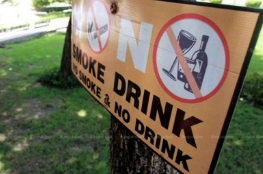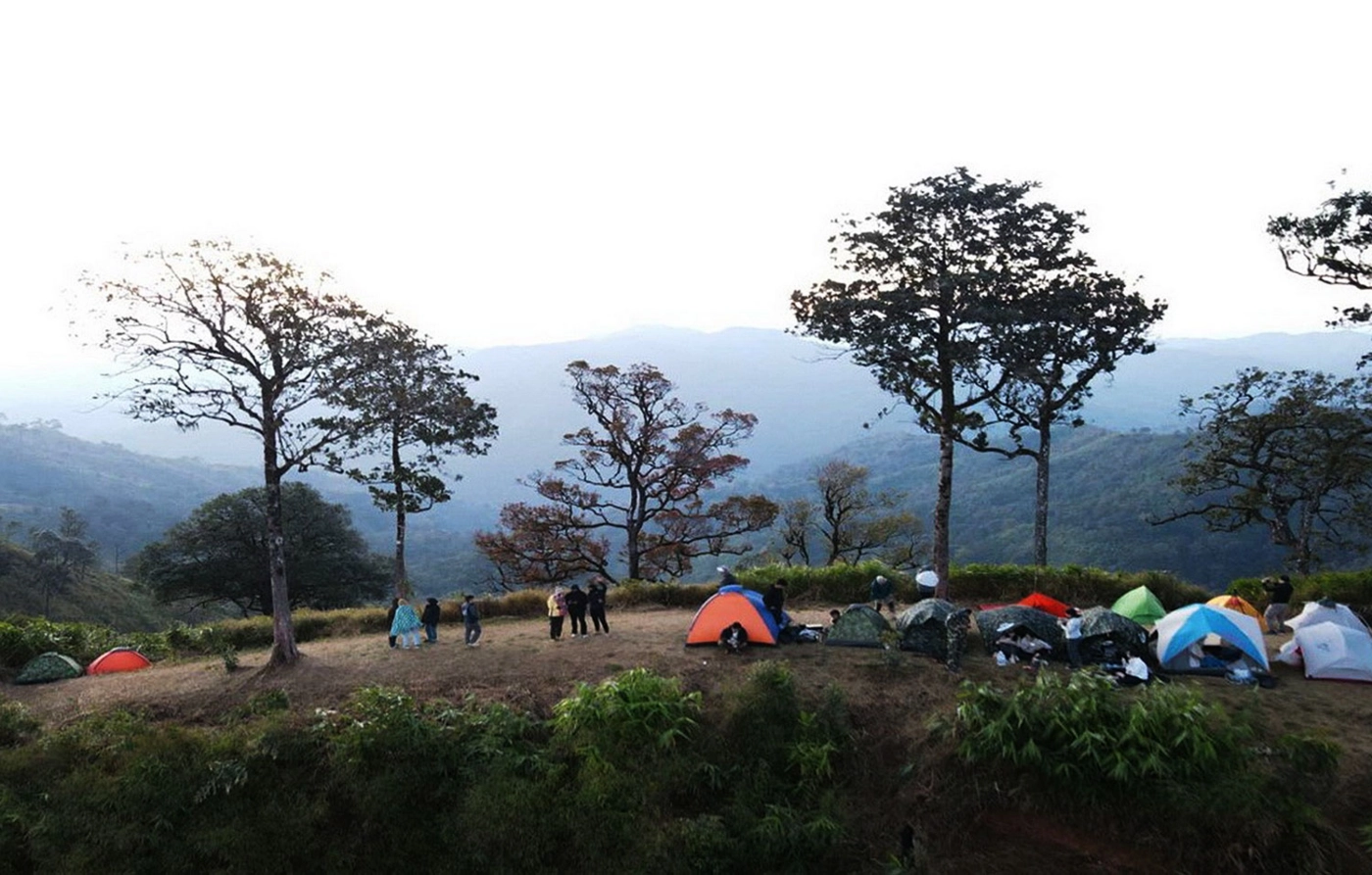Thailand Eases Alcohol Ban in National Parks: What You Need to Know
Thailand is known for its rich biodiversity and stunning national parks, attracting tourists from around the world who seek to connect with nature. However, recent changes in the rules governing alcohol consumption within these protected areas have garnered significant attention. The Department of National Parks, Wildlife, and Plant Conservation (DNP) has decided to relax the alcohol ban in certain areas of national parks. This move is expected to have a significant impact on tourism and recreation in these parks. In this article, we will explore the details of the updated regulations, how they will be implemented, and what this means for park visitors.
Understanding the Current Alcohol Ban in National Parks
Until now, Thailand has imposed a strict alcohol ban in all national parks. The regulation was introduced to maintain peace and prevent disturbances to the park’s visitors, especially those who were camping or enjoying the natural surroundings. The DNP argued that alcohol consumption could disrupt the tranquility of these areas, affecting the experience of other visitors who came to appreciate the natural beauty in a calm and peaceful environment.
The ban was particularly enforced in camping areas and recreational zones within the parks. It was seen as essential to maintain the parks’ natural integrity and to ensure the safety and well-being of visitors. However, as tourism and recreational activities within national parks have grown, the issue of alcohol consumption has become a more debated topic, leading to the introduction of new regulations aimed at balancing tourism interests with environmental protection.

New Regulations Allow Alcohol in Designated Areas
In a recent move, the DNP announced a revision of its alcohol consumption policy. After conducting a series of public hearings, the department has decided to allow alcohol consumption within designated areas in national parks, but only under specific conditions. The new regulation is designed to create a more controlled environment for alcohol consumption while still protecting the interests of other visitors who may not want to be disturbed.
The updated rules state that alcohol will only be permitted in specific areas designated for recreational purposes, such as clubhouses. However, individuals or groups who wish to consume alcohol in these areas will need to obtain a permit from the park’s chief. This change is designed to address the needs of tourists who wish to enjoy alcoholic beverages in a controlled and designated space without disturbing others.
Key Aspects of the New Alcohol Policy:
-
Designated Alcohol Zones: Alcohol consumption will only be allowed in areas that are specifically designated for this purpose. These zones may include recreational clubhouses or other locations approved by the park’s management.
-
Permit System: A permit will be required for groups wishing to consume alcohol within these designated areas. Individual requests will not be entertained, and permits will be granted based on the group’s needs and the park’s policies.
-
Prohibition in Other Areas: Alcohol will continue to be prohibited in all other parts of the national parks, including camping grounds, hiking trails, and other natural spaces. The goal is to ensure that alcohol consumption does not disturb the peace or the environment.
-
Public Hearing Process: The DNP has already held a series of public hearings to gather opinions from the public and experts. The final regulations will be submitted for approval and are expected to be enacted within the next two months following their announcement in the Royal Gazette.
Why Is the DNP Relaxing the Alcohol Ban?
The decision to relax the alcohol ban is based on several factors, including the increasing popularity of Thailand’s national parks as tourist destinations. These parks are vital to the country’s tourism industry, attracting millions of visitors every year. As tourism grows, the demand for more diverse recreational options within national parks has also increased. Many visitors seek to enjoy a drink while socializing with friends or family in designated areas, and this new policy aims to accommodate that demand.
Moreover, the DNP has also pointed out that the old alcohol ban was somewhat restrictive and did not always meet the needs of all visitors. By relaxing the alcohol policy, the department hopes to create a more enjoyable experience for tourists, making national parks more accessible and accommodating to various recreational preferences.
The Permit System: A Key Component of the New Policy
One of the most important aspects of the new alcohol consumption regulations is the permit system. This system ensures that alcohol is only consumed in areas where it will not interfere with other visitors’ enjoyment of the park. By requiring permits, the DNP aims to keep the park’s peaceful and natural atmosphere intact while allowing for controlled recreational drinking.
Permits will be granted for groups, not individuals, and will be subject to approval by the park’s chief. This approach ensures that alcohol consumption remains a group activity rather than an individual one, which can help maintain order and control over where and how alcohol is consumed in the parks.
This regulation also ensures that the consumption of alcohol is monitored and that the groups granted permits will be responsible for adhering to the rules. The system is designed to be transparent and fair, providing a balance between tourism needs and the preservation of the park’s environment.
What Does This Mean for Visitors?
The relaxed alcohol ban in Thailand’s national parks presents a new opportunity for tourists to enjoy their visits in a more relaxed and sociable environment. While alcohol will still be prohibited in most areas of the park, the designated zones will offer a place for those who wish to enjoy a drink in a controlled setting.
Visitors planning to consume alcohol in the parks must be aware of the following:
-
Obtain a Permit: If you plan to drink alcohol in a designated area, you will need to obtain a permit from the park’s chief. This process will ensure that your consumption is in line with the new regulations.
-
Respect the Environment: The DNP is still committed to preserving the natural beauty and tranquility of the parks. Alcohol consumption will only be allowed in specific areas to avoid disturbing other visitors and wildlife.
-
No Alcohol in Public Areas: Alcohol will not be allowed in public areas like hiking trails, campsites, or other recreational spaces that are not designated for drinking. Visitors should respect these boundaries to maintain the park’s peaceful atmosphere.

Potential Benefits of the New Policy on the Alcohol Ban
The new policy regarding the alcohol ban could bring several benefits to both tourists and the Thai government. Here are some potential advantages:
-
Boosting Tourism: Lifting the alcohol ban in designated areas could make national parks more attractive to a broader range of visitors, particularly those who enjoy having a drink in a social setting.
-
Supporting Local Businesses: The easing of the alcohol ban in specific areas could create new opportunities for local businesses, such as park vendors and tour operators, who may benefit from the increased foot traffic and spending in designated zones.
-
More Control Over Alcohol Consumption: By introducing a permit system, the DNP can better control where and how alcohol is consumed in national parks. This could help prevent unruly behavior and ensure that alcohol consumption is kept within reasonable limits.
Conclusion
The relaxation of the alcohol ban in Thailand’s national parks marks an important shift in the country’s approach to park management and tourism. By allowing alcohol consumption in designated areas with a permit, the DNP hopes to create a more enjoyable experience for visitors while maintaining the parks’ natural beauty and tranquility. As the new regulations are finalized and implemented, it will be interesting to see how this policy impacts tourism and visitor behavior in Thailand’s national parks. For now, tourists can look forward to a more relaxed experience when visiting these stunning natural reserves, knowing that the government has taken steps to balance recreation with preservation.
By implementing the new alcohol consumption rules, Thailand’s national parks are poised to offer visitors a more inclusive and enjoyable experience, ensuring that the country’s natural wonders continue to captivate tourists from around the world.
See more articles
Royal Casino: คู่มือสุดพิเศษสำหรับการพนันออนไลน์
Casino Games: คู่มือครบวงจรเกี่ยวกับการพนันออนไลน์
Sports Bet: คู่มือพื้นฐานและรายละเอียด










